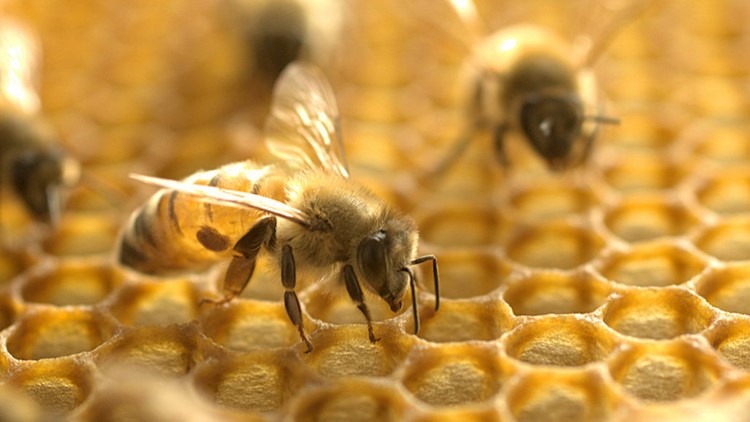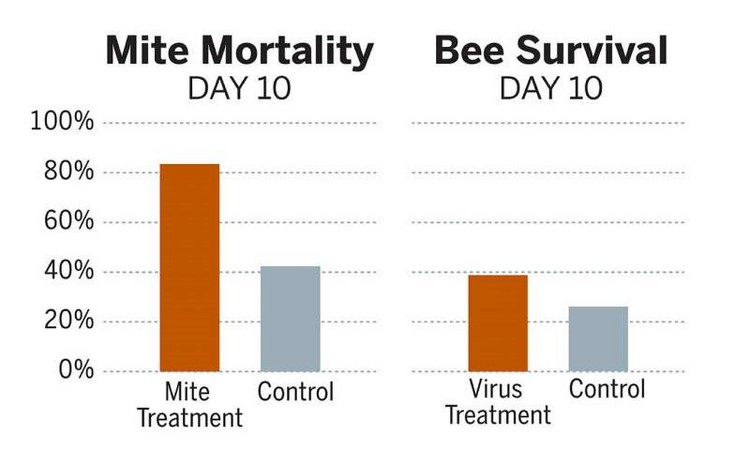New bacteria are said to protect bees from pathogens
Scientists from the University of Texas at Austin report in Science magazine that they have developed genetically modified bacteria to protect honeybees from a deadly trend known as the colony collapse disorder (CCD). The modified bacteria, which live in the intestines of bees, act like a “living vaccine” against two of the main causes of the bee vok collapse: Varroa mites and the “deformed wing virus” (DWV), which often occur together.

Honeybees have a remarkable gut microbiome and an antiviral defense mechanism called RNA interference (RNAi), which helps to ward off certain viruses called RNA viruses.
Jeffrey Barrick, a microbial evolutionary biologist at the University of Texas (Austin), and his colleagues decided to test whether they could recruit bacteria that live in the honeybee's gut to produce RNA that the mite or the virus produced – causes some of their own genes to be destroyed. While humans have thousands of gut bacteria, all honeybees have the same six to eight gut microbes.
Barrick's graduate student Sean Leonard found out how to genetically modify one of these bacteria, Snodgrassella alvi, so that it continuously produces RNA that matches the genetic material that it wants to break down: genes that are essential for the mite's or virus's survival are. He then fed groups of up to 20 bees with the bacterium before exposing them to the mites or the virus.

For the mite test, the researchers tracked the fate of the parasitic pests. The mites are about 70 percent more likely to die within 10 days if they feed on bees with the new intestinal microbes than on control bees.
The virus tests also looked promising. Bees vaccinated with protective bacteria had a 37 percent higher survival rate 10 days after exposure to the deformed wing virus.
The modified intestinal bacterium remains in the honeybee's intestine for at least the duration of the tests (15 days) and provides an even supply of antiviral RNA. And because adult bees feed developing bees, they may be able to pass these beneficial gut microbes on to the next generation, says Barrick.
The researchers believe that one day their method could also be used in agriculture because the genetically modified bacteria are easy to grow, the vaccination of the bees is easy, and the intestinal bacteria are unlikely to spread beyond the bees.
Another advantage of the approach is that researchers can use it as a tool to study bee genetics. The genetically modified bacteria can provide insights into the functioning of the bee genome and possibly enable new breeding strategies to create more robust bee colonies.
(youtube https://www.youtube.com/watch?v=38Wj4byHML0)
Honeybees play a huge role in global food production. Without honeybees, dozens of crops, from almonds to berries to broccoli, would either disappear or produce much less food. According to a national poll, US beekeepers lost nearly 40% of their honey bee colonies last winter. This is the highest rate recorded since the survey started 13 years ago.
Further information: “Engineered symbionts activate honey bee immunity and limit pathogens” Science (2020).
The post New bacteria to protect bees from pathogens appeared first on Deavita.com | Living ideas, design, hairstyles, make-up, lifestyle, health and beauty tips.





















